The Land of Milk and Honey
11 July 2017 | Inside Angama | Misheck Murage
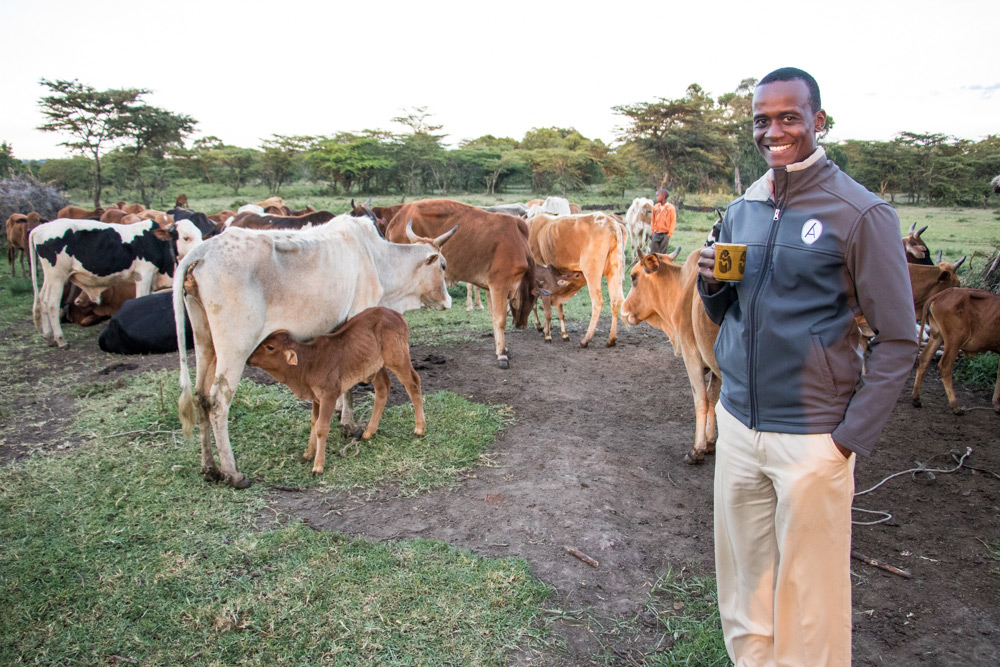
The Great Rift Valley, home to the Maasai, largely consists of pastoralist communities who depend on their livestock to uplift their economic stature. Herds of cattle and many children are their pride. Daily they pray to The Creator to grant them more cattle and children – Meishoo iyiok Enkai inkishu o-nkera. However, there has been a paradigm shift in their way of life as they are now forced to the adapt to the changes in their environment resulting in shortage of pasture caused by drought and the creep of western civilization.
In 2015, the Maasai welcomed Angama Mara into their community. At Angama, we are committed to delighting our guests and making a difference by supporting our neighbours who have embraced change and decided to take a chance. Every month we spend over USD10,000 to empower our grassroots suppliers. This has gone towards educating their children, access to better medical services and savings for future needs.
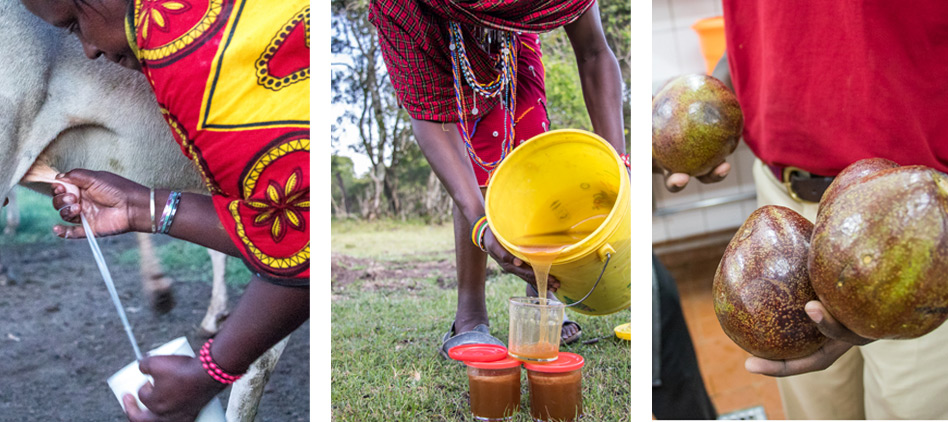
Naanyu wakes up at 5am to prepare her sons for school. She then heads out from her manyatta to the cowshed where she prepares her 8 cows for milking giving her 5 litres of milk a day. She gets 3 litres a day from Ndambu and Norumongi, her recent acquisitions after she sold a steer. There are five families who supply milk at a monthly cost of USD650 to the lodge.
Kenyans love to drink chai and local milk is the main ingredient: 15 litres unpasteurized milk; 10 litres water; 200gms tealeaves; 2.5 kg sugar. Pour milk into a large pot and bring to boil. Add water and bring back to the boil. Add tealeaves and sugar and boil until tea turns brown. Sieve into a kettle ready to serve.
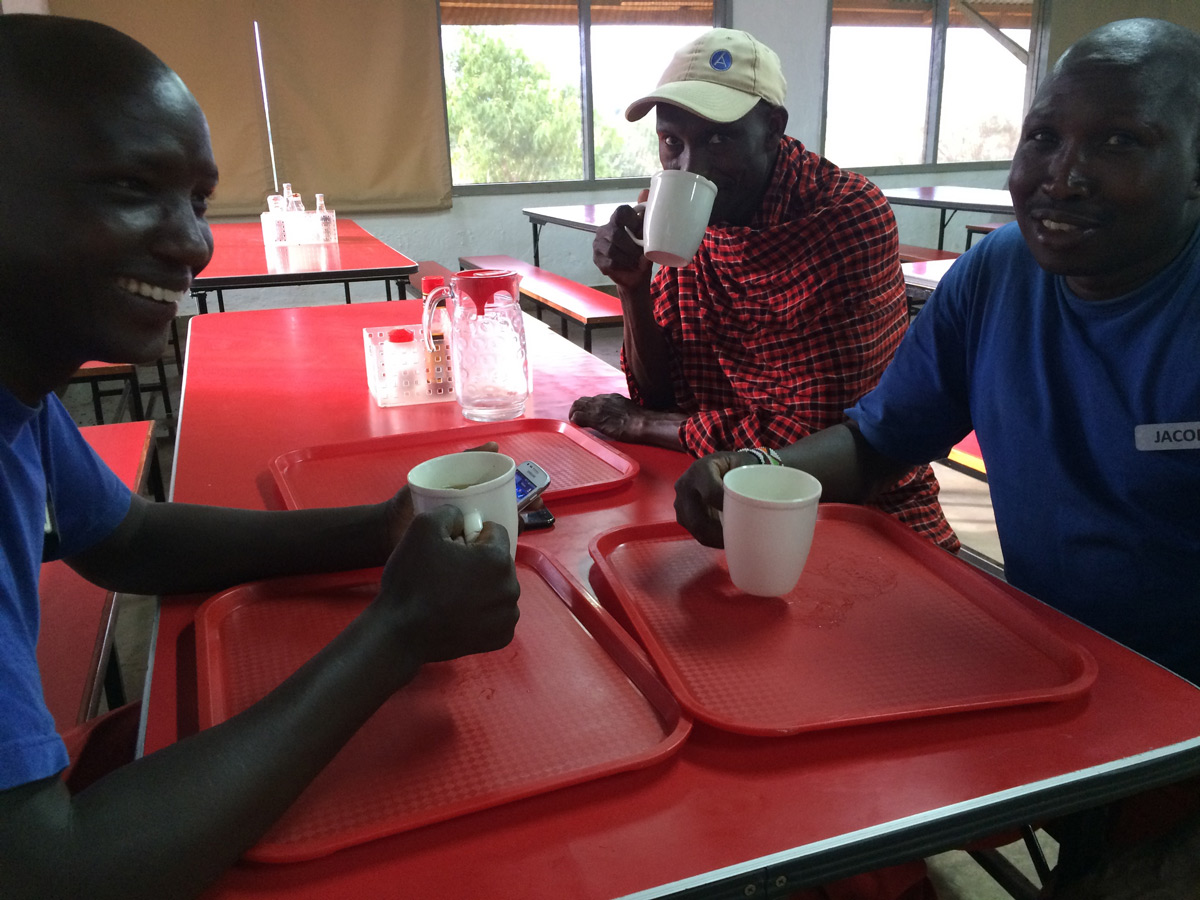
Joseph Ole Kipembeu is our main vegetable supplier. He knows too well that our food should always be good. The weekly supplies include cabbage, kale, tomatoes, onions, watermelons and bananas for the staff as well as avocadoes, which our guests devour by the dozen. Joseph, a father of four, embraced modern farming styles and animal husbandry as an income-generating venture. He recently acquired another 20 acres for his cattle and a new motorbike. Angama spends USD 2,000 monthly on locally sourced vegetables.
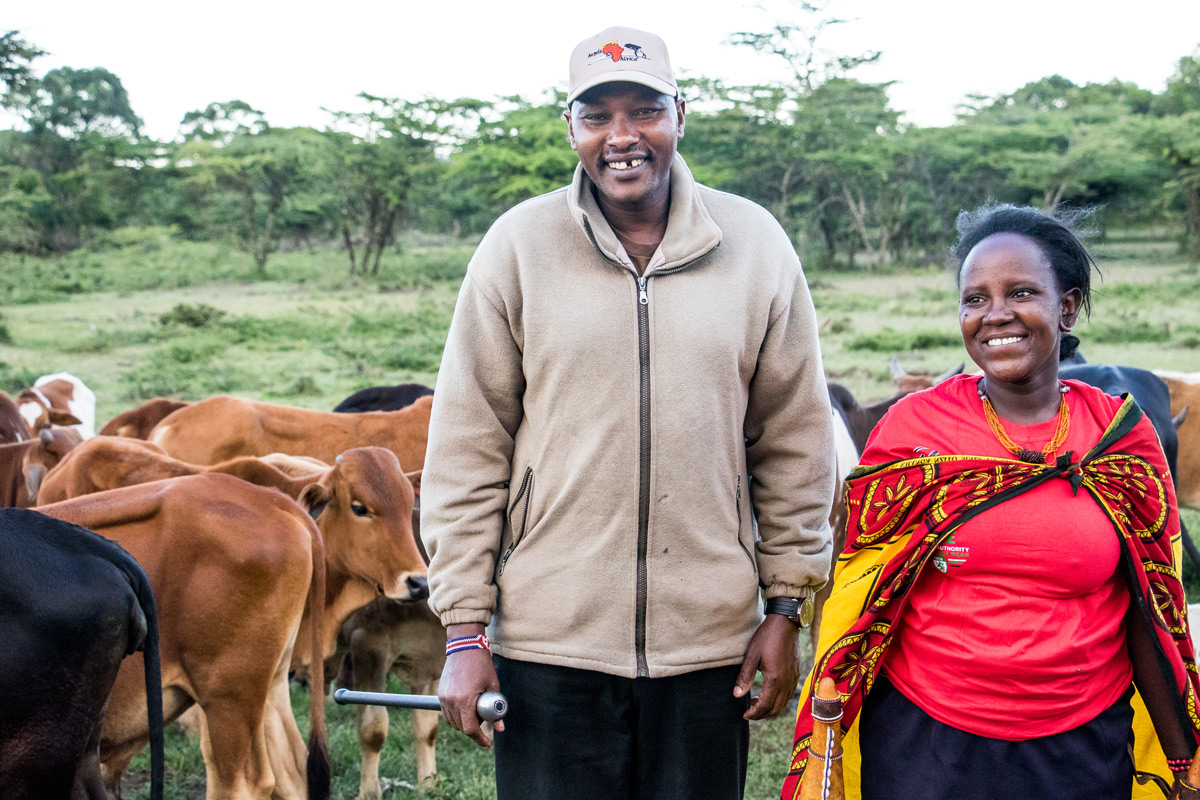
It is said that traditional Maasai beehives yield more honey than modern hives. John Penko, our Maasai naturalist, also doubles as the reliable supplier of Maasai honey. He harvests 20kgs of honey in one traditional beehive but much less from the modern hives. We use the honey to make Maasai Honey Biscuits for the guest tents. Our guests also enjoy Dawa, an East African mojito made with local honey, which has a lovely smoky flavour.
Mr Kanoi is our trusted mbuzi (goat meat) supplier. When slow cooked, mbuzi makes the favourite delicacy for our Angama staff. Partying at the lodge never goes without a mbuzi barbeque. In a good month, Mr Kanoi, father of six, receives USD 1,000 for supplying 230kgs of mbuzi.
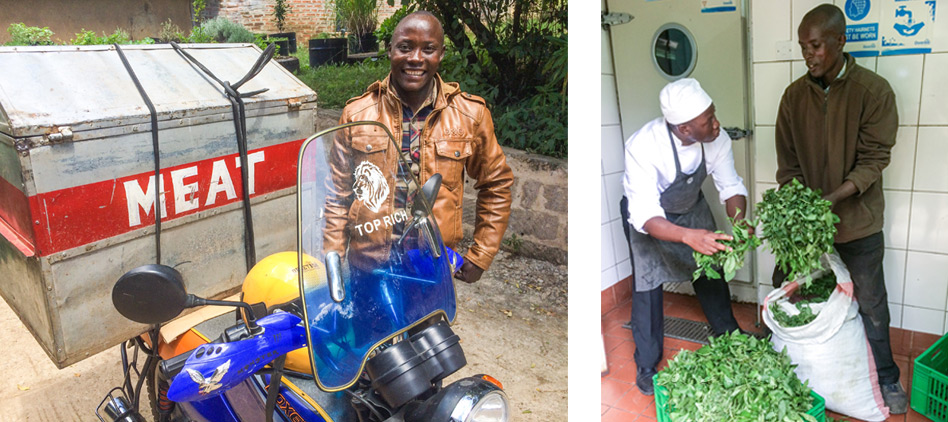
Mr Dahir is our local hardware supplier from Mara Rianta, 10kms from the lodge. He receives up to USD 5,000 for projects undertaken at the lodge. From the construction of our clinic; a greenhouse at the shamba; office deck and the new staff gym, Mr Dahir has been a key reliable source of local materials.
We have contracted eight beautiful Maasai ladies at the beading studio in our Safari Shop to custom make key rings, bracelets, necklaces, lampshades and Christmas decorations among other items. Working in flexible teams of four they can also customize beadwork on guests’ clothing and happily teach our guests the art of Maasai beading.
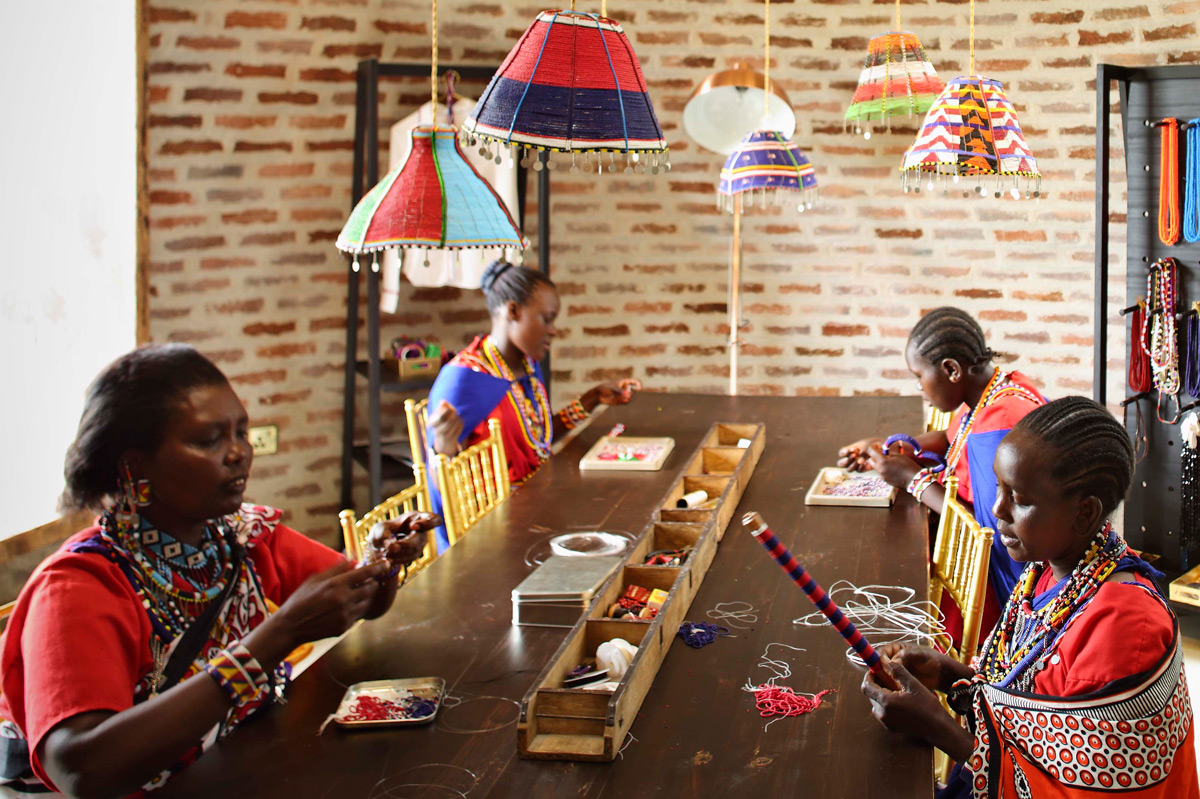
We are proud that the community has embraced change and taken a chance to explore more sources of livelihoods by becoming our homegrown suppliers. We gave our local community half a chance and they took it…
“The only safe thing is to take a chance.” (Michael Nichols)



COMMENTS (10)
David Mwangi
July 11, 2017A great piece worth reading.
REPLYA clear and detailed analysis of what Angama Mara is.
Nicky Fitzgerald
July 12, 2017Thank you so much David
REPLYChizi
July 11, 2017Good read and great work Angama.They say necessity is the mother of invention and with the economic hardtimes and the changing environment and lifestyle this is a good way to help and educate community.
REPLYNicky Fitzgerald
July 12, 2017Thank you so much for your lovely comment
REPLYJacqueline Ngomo
July 13, 2017Great piece, good work. Keep up Angama
REPLYNicky Fitzgerald
July 13, 2017Thanks so much Jacqueline
REPLYShari Provenzano
July 18, 2017Such a great blog! We experienced first hand how fabulous the honey supplied by John is – and it may have been in a Dawa…. Also, some of the beautiful beading by the Masai women made it back to Texas. It is wonderful to see how the Angama Mara supports the local community. Even better to get to experience it!
REPLYNicky Fitzgerald
July 18, 2017Thank you dear Shari – I am so happy you came to stay and could experience all this yourself – we loved having you here at the lodge
REPLYIan Dommisse
July 26, 2017A shining example of empowering local enterprise whilst reducing carbon footprint of the lodge. Well done for executing this initiative Misheck
REPLYNicky Fitzgerald
July 26, 2017Thanks so much Ian
REPLY